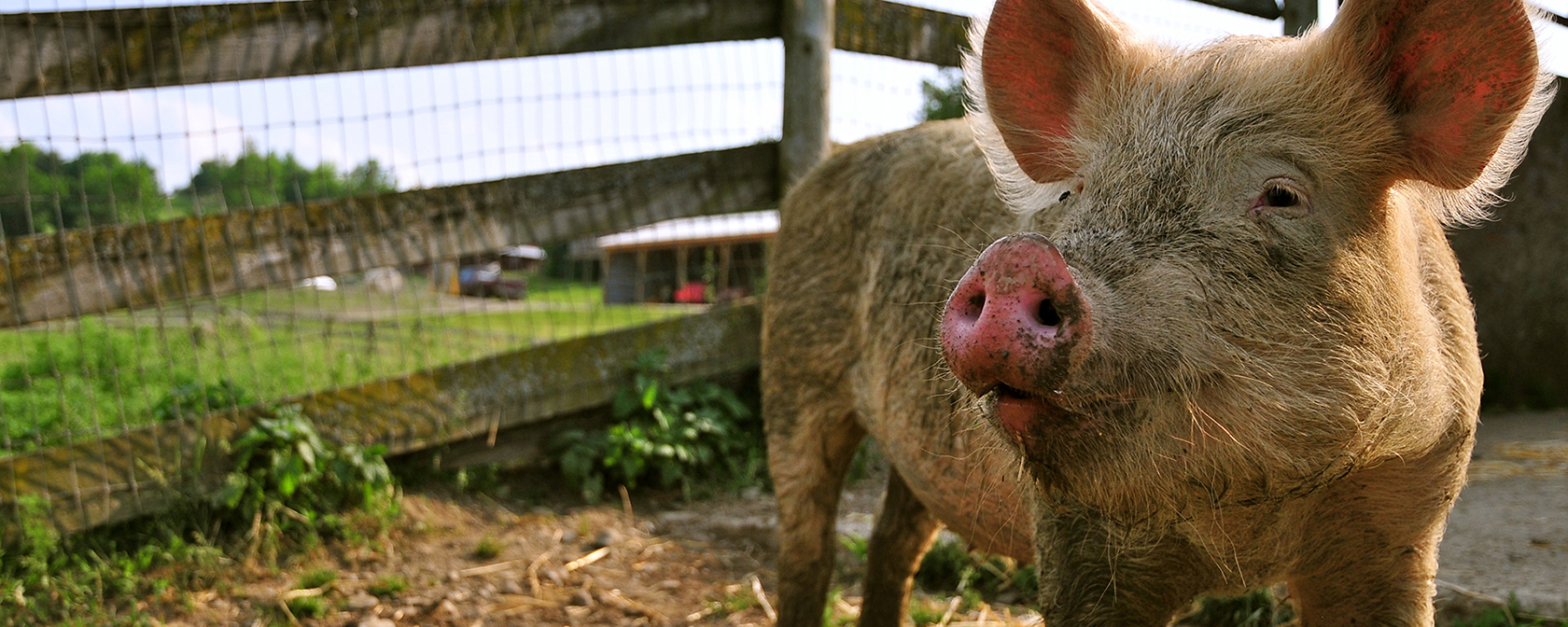[ad_1]
By Sara Amundson and Kitty Block
Earlier this month, New York Times columnist Nicholas Kristof highlighted our society’s moral inconsistency when it comes to animals we keep as pets and love as family members, like dogs, and the animals kept and killed for food, like pigs.
While Kristof is not the first to point out this stark contrast, he does so with an urgency matching the current moral and political moment. The reduction of animal suffering in agriculture is one of our core priorities and, taking account of the tremendous harm factory farming does to animals, the climate, natural resources and human health, it is one of the most urgent issues of our era; it deserves everyone’s attention.
A key goal is to eliminate cruel confinement systems for farmed animals. Also known as intensive confinement, this practice is inherently tormenting. Gestation crates for pigs, battery cages for hens and veal crates for baby cows mean that these animals can barely move a few inches in any direction for months on end.
We’ve backed up our concern with action in legislatures across the U.S., in corporate board rooms and shareholder meetings, and in direct communication with the public and with food service institutions around the world. Last year, in a historic success, we won a challenge by pork producers in the U.S. Supreme Court about the nation’s strongest law for farmed animal welfare, California’s Proposition 12.
One would hope that would be the end of the story. Instead, right now, a backwards-looking segment of the pork industry and some legislators doing their bidding are trying to nullify state laws that prohibit intensive confinement of animals and the sale of products derived from such inhumane practices.
Across the political spectrum, people recognize that treating farmed animals with some level of respect for their comfort is simply the right thing to do. Our work to end the cruel confinement of animals raised for food has succeeded in 15 states—red, blue and purple.
And yet: pork producers that lost in the U.S. Supreme Court (which unanimously rejected the National Pork Producers Council’s main argument in 2023) have persisted in their efforts to overturn progress for farmed animals, even as many farmers have already decided to switch to systems that eliminate extreme cage confinement. The EATS Act represents one attempt to undermine more humane treatment of animals; a provision in the proposed House Farm Bill represent another. The same faction of the pork industry is also attacking Proposition 12 and similar state laws through misleading claims about pork shortages and price hikes.
So, it’s deeply important that voices like Kristof’s lend themselves to thinking through the complexities of how our society treats animals. The media has tremendous power to influence the way the public perceives animals and their plights. The more space in the media devoted to animal issues, such as Vox’s extensive coverage of factory farming, the better informed the public can be and the better our society can reshape itself on humane grounds. Keeping the topic in the public consciousness will also inspire voting and political action that further humane values.
We’ve noticed that this election season in the U.S. has also highlighted animals—from cats and dogs to horses and monkeys—in a way we’ve never seen before. We were happy to provide comment on this for a recent piece in the Washington Post.
And it’s not just traditional news sources like the Times, the Post, the Associated Press, ABC News and others that have been bringing animals into the fold. In recent years, several nonprofit news sources have added a heartening focus to the media landscape. Outlets such as Sentient Media and Civil Eats frequently focus on the food system and its effects on animals, the environment and human health. Another promising development is the launch of WIRE, a nonprofit news outlet that focuses on the commercial exploitation of animals and nature.
We are grateful for all the reporters and editors who draw attention to the treatment of animals and help to support more public discussion of urgent issues facing billions of non-human lives. Doing so is essential for creating a world whose foundations and systems don’t depend on animal suffering.
Kitty Block is CEO of the Humane Society of the United States.
[ad_2]
